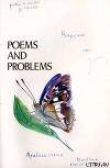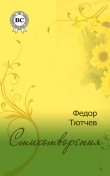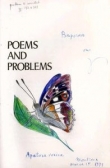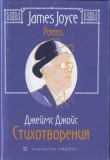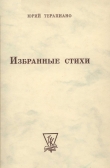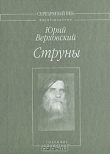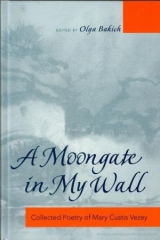
Текст книги "A moongate in my wall: собрание стихотворений"
Автор книги: Мария Визи
Жанр:
Поэзия
сообщить о нарушении
Текущая страница: 2 (всего у книги 19 страниц)
Mary Vezey died on 18 October 1994 in San Francisco.
In one early poem she wrote: "This is not a poem, this is the music of the soul" (poem 275), and musicality is inherent in her poetry, as it is for many romantics and symbolists who considered music the highest form of art. The tonality of her music is sadness; Blok's "heavy flame of sadness"[39]39
K. Chukovskii, Aleksandr Blok как chelovck i как poet (Aleksandr Blok as a Person and as a Poet), Petrograd, 1924, p. 135.
[Закрыть] is the key to her entire poetry: «great sorrow is given to us, / and we carry it as a banner» (poem 180). Its root lies in the contrast between the crude, gray life on earth and the vision of the other, beautiful world: «the soul did not have enough words / to tell of the sadness of dreams» (poem 468). One of the key symbols of this other, invisible world is a star, and her first collection opens with a poem where a white star falls down «to a cold, dry reality» (poem 1). In a poem dedicated to her brother, the poet says: «We both came not from this world, / but from a different star /(…) we live with a blessed hope / to see that star again» (poem 54).
Sad love lyrics are prominent in her early poetry: "I wrote my poems not for you at all, / but for my dream" (poem 295). Over the years, this "sadness with its enormous eyes"[40]40
See note 33.
[Закрыть] focuses on the sorrows of contemporary life: «there is so little warmth and joy in the world—/God, save and have mercy on people and animals!» (poem 441). The poet sees homeless, sick, old people, lost in a big city, hears an abandoned dog howling by locked gates, mourns the victims of the Civil War in Biafra and of the Vietnam War. Ten terse lines of «Nalet» lAir Raid) (poem 4B1) describe the bombing of a shipyard, the death of thirty-five children in an orphanage nearby, and the shooting down of an airplane. This dispassionate narrative is broken twice: in the second line, a woman's voice begs the pilot: "Take care! God be with you!/' and in the last line the same voice is barely able to contain its grief; «Only one did not come back – mine.» The children in the enemy city perished, and so did the beloved who bombed it.
Compassion is powerfully expressed in the poem "Zhena Lota" (Lot's Wife), written in two versions, first in Russian and a year later in English. The theme had already been explored by Anna Akhmatova in her 1924 poem "Lotova zhena" (Lot's Wife), where Lot's wife becomes an image of an exile, ready to give her life for her loyalty to the past. Mary Vezey gives her last glance a different interpretation: Lot's wife tells how, unlike her "God-fearing and brave Lot," she ("And I–I am a woman,") could not walk away without looking back. For her, "sweet was the knowledge, even for a moment, / that at least one, perhaps an enemy or a friend, / on the brink of death, in semi-consciousness, felt the final farewell, / having seen the tremble of my powerless arms" (poem 377). The English poem (poem 533) expresses this with an even greater power and clarity:
I couldn't run away: I stopped and turned—
What matter that the price I paid was life,
was immortality?
Perhaps in that brief moment
some friend or enemy before he died
breathed easier because he glimpsed, half-blinded,
through fire and smoke, beneath a fallen pillar,
my shaking arms stretched in a last farewell?
Loneliness is another key theme; «and no one will hear your voice in the night, / whether you shout or not» (poem 223).[41]41
Powerful lines of this poem serve as an epigraph to an article on the Harbin literary scene of the 1930s: Ju. Kruzenshtern-Peterets, «Churaevskii pitomnik (O dal'nevostochnykh poetakh),» Vozrozhdenie, no. 204, December 1968, pp. 45–70, and to an article on Russian women poets of China: Olga Bakich and Carol Lid and, «The Eastern Path of Exile: Russian Women's Writing in China,» A History of Women's Writing in Russia, ed. by Adele Marie Barker and Jehanne M. Gheith (Cambridge University Press, 2002), pp. 153–174.
[Закрыть] Her third collection ends with a poem which says in part: «How frighteningly lonely we are in this world! / In a crowd of people such as us / we wander like lost children, / over the precipice of despair and darkness. / We are fated to face the solitary absence of a path/and an occasional impotent sadness…» (poem 244). Death condemns the living to loneliness; «You have left this world… but where to?/The earth is covered with darkness./(…) What am 1 going to do now / on my cold earth?» (poem 453). She sees her own death as sailing away: «My ship will depart in the same way / for unknown seas, in a desolate night,/and there will be no lighthouse on the rocks,/and not a single star will shine/in the sky, but the helm will turn quietly,/and the hum of the earth will grow quiet behind the stern» (poem 335). This last voyage will lead to those who have already left: «There we'll furl our sails. / The morning of meetings is not tar away!» (poem 457). An angel from an early poem who «opened the black gates of the quiet night» and «sad, sad, stood on guard» (poem 332), appears as a welcome image in one of the last poems: «the quiet angel over my shoulder / unlocks the door with his key, / and I enter where 1 need to / and find those I need» (poem 491).
Her poetry is filled with a deep awareness that "you are also a part / of this very life, and grass, and sky, / that the sky is quietly blue above you; / that you are the grass, the tiny insect, the sky, the sun, / the clump of earth by the roots of grass" (poem 229). People "in huge / cement and asphalt tombs / on the bottom of deep, stone wells" forget about "the gold of fallen leaves/' the autumn smell of mushrooms and wet earth, the rustling of wind in a large garden, and the simple beauty of nature (poem 376). Poems grieve the destruction of nature by urban sprawl: houses are built, paths disappear under the cement, small animals run away, and "only the clouds in the sky / remind of the perished miracle" (poem 433).
She paints with a beautiful symbolist palette. One of the dominant colours is white and its derivatives and compounds; frequent use of black and derivatives provides a powerful contrast Some poems resemble paintings done in black ink on white paper. In "Saleve" (poem 220), touches of silver and gold are added to a black and white landscape. Another colour of great importance is the light blue goluboi) of the title of her third collection, the beloved colour of romantics and symbolists. Gray is reserved for cities with their enormous buildings, street hospitals, fences, dusty streets, and crowds.
Her poems tend to be short, mostly untitled, and resemble inner monologues. In some, the final line throws a new light on the entire poem. The "Byl okean surovyi tsveta stali" (The severe ocean was the colour of steel) (poem 482), describes a ship which makes it safe to harbour during a storm and the sailors happy that the emergency is over, and then culminates with the words: "But what the night promised, no one knew»." In another, recollection of a night walk through a forest and of coming to a river where "the quiet stretch of sand lay pink and golden" and fishermen greeted the sunrise, suddenly ends on the line: «At that time we did not even dream of the whirlpool of tears» (poem 483).
Her Russian poems generally follow traditional metrics and rhyme patterns, though her later poetry displays some most interesting departures from tradition. She admitted: «Many write without rhymes, but I am old fashioned and like music in poetry, but sometimes I love 'free verse' and write like that myself. But I have one self-imposed rule: either free verse, or rhyme, but if it is rhyme, then the entire poem is rhymed.»[42]42
Letter from M. Vezey to T. Jelihovsky, 30 October 1993.
[Закрыть]
Mary Vezey's poems in English form about a quarter of her poetic heritage-As her translations from English show, she was interested in the American poetic renaissance at the beginning of the 20th century, particularly in the imagists Amy Lowell, John Fletcher, H.D., Carl Sandburg, Sara Teasdale, and others, and was the first to translate Edna St. Vincent Millay into Russian. Her English poetry is dominated by the same themes as the Russian: recollections of childhood vacations in Finland, dreams of becoming a poet, longing for a higher reality, alienation and loneliness, contrast between city and beloved nature, and the search for a path in life. However, her English voice tends to be more independent and assertive and sometimes displays touches of irony, rare in her Russian poetry. An interesting aspect of several later English poems is surrealism, evident in such poems as "Come to the classroom, padre, while the students" (poem 534) and "Night Dance" (poem 531).
The unfinished cycle "My China" occupies a unique place in her English poetry. Though she had lived in China for 21 years, there is but a little trace of China in her Russian poetry, which is generally typical of most Russian poets in China. She did not know Chinese, but was interested in Chinese poetry in English translations. At Pomona College, she published an article on the poets of the Tang dynasty, where she stressed that Chinese poems "are simple and seldom overburdened with useless words. Every word gives a concrete idea, and as a whole, the poem creates a brief, clear picture around which the reader's mind is left to build up the details. Impressionism is the keynote of Chinese poetry. (…) East meets West in the poetical mind."[43]43
Mary Vezey, "Chinese Poetry During the T'ang Dynasty’' Manuscript, May 1925, v. 2, no. 3, p 14, 15.
[Закрыть]
Most poems in this beautiful cycle begin with an epigraph composed in the style of a quotation from a Chinese poem, though one is taken from an actual poem by Bo Juyi. The poems present loving and attentive glimpses into Chinese nature and people. The cycle begins and ends with poems about poetry. The first (poem 543) describes the loving preparation of brushes, ink tablet, and a "small thick volume," where "the ivory-white rice paper page / is blank," for writing a poem. In the last (poem 561), the poet imagines how, centuries later, her "beautiful polished white bone" will be found in the Gobi desert by a child who "will take it to her father / to make her a flute / to sing a song."
Mary Vezey once wrote: "I know that I translate well (I can judge), and I love it very much."[44]44
Letter from M. Vezey to O. Bakich, 19 July 1992.
[Закрыть] She had an exceptional feel for languages and the gift of fully retaining lexical and semantic precision, rhythm, rhyme, and structure. On one draft, she scribbled that her translations were actually «transmutations – that's what these should really be called.» She has the honour of being the first to traaslate Gumilev and Blok into English, and continued to translate Russian symbolist and acmeist poets throughout her life. She also translated many emigr6 poets. In the 1960s-1970s, she turned to translating some contemporary Soviet poets, such as P. Antokol'skii, E. Evtushenko, N. Zabolotskii, B. Okudzhava, N. Sidorenko, V. Soloukhin, as well J. Brodskii, but these translations have not been preserved. Her translations from French (Paul Verlaine, Blaise Cendrars), German (Heinrich Heine, R.M. Rilke), and Italian (Tosti) into Russian did not survive either, except for Paul Verlaine's poem «La ciel est, par-dessus la toit» (poem 570).
She also translated Korean poems of the XIII–XIX centuries into English from Russian translations in the collection Koreiskie shestistishiia (Korean Six-line Poems), published in Alma-Ata in 1956. These six-line poems (sidjo) appealed to her, because, as is pointed out in the Russian introduction to the original collection, they "present an aphorism expressed in images (…), paint a picture of nature in which the main thing is the mood, the feeling of the lyrical hero (…), (and) combine utmost laconism with exceptionally fine poetic instrumentation."[45]45
«Predislovie,» (Introduction) Koreiskie shestistishiia, p. 6–7.
[Закрыть] To some extent, this observation applies to her poetry as well.
The poetry of Mary Custis Vezey, which evolved from Russian symbolism, American imagism, and some thematic closeness to Chinese poetry, sings with the quiet and sad voice of an exceptional poet who saw life as a tragic contrast between the possibility of a different life and reality. The title of the present collection is chosen from a poem in the cycle "My China," where the poet describes strong, barred, and guarded gates, and says: "But I prefer a moongate in my wall– / an open gate that has no use for looks. / Come, let us walk right through and see the pines / shedding dark needles on the moonlit steps!" (poem 550). This truly reflects the essence of her personality and poetry.
This collection presents all the poems and translations by the poet that I succeeded in finding. They are numbered; the dates are Mary Vezey's, occasionally followed by her own question mark. In undated, unpublished poems, if the dating is my guess, it is given in square brackets.
Part One reproduces her three books: Stikhotvoreniia (Poems), Harbin, 1929; Stifdiotvoreniia II (Poems II), Shanghai, 1936; and Golubaia trava (Blue Grass), San Francisco, 1973, in their entirety. In Golubaia irava, the poems reprinted from the two earlier collections are omitted, but indicated in the appropriate places with the number assigned to them in this book and the first line.
Part Two presents unpublished poems written in Russian and not published in any of her collections, They are given in chronological order, and their publication in Emigre periodicals and collections, whenever known, is listed in the footnotes.
Part Three presents unpublished poems in English in chronological order and includes the cycle "My China."
Part Four consists of unpublished translations. It is divided into five sections: translations from English into Russian, from French into Russian, from Russian into English, from English translations of Chinese poetry into Russian, and from Russian translations of Korean poetry into Russian.
I thank Olga Tourkoff for materials from her mother's archive and for permission to publish the poetry.
I also thank Philippa Wallace Matheson for her excellent work on the typography of this book, and for many improvements in the Introduction and in the notes.
I am also grateful to Veronica Ahrens-Pulawska, Globus Bookstore, San Francisco, for her support and help in collecting and copying Mary Vezey's poems; to Jean Beckner, Special Collections Librarian, Pomona College, and to Beverly-Jene Coffman, Office Manager of the Office of Public Relations, Pomona College, Claremont, for materials on Mary Vezey's education and publishing at Pomona College; to Elena Chernyshev, Sydney, Australia, for the artwork in this book; to Dr. T. Jelihovsky-Wisely, Sydney, Australia, for materials about her friend, Mary Vezey; to Boris Thomson, Professor Emeritus, University of Toronto, for his help in working on this publication and for his Foreword; and to Steve Upton, USA, specialist on foreign education in China, for materials on the North China American School in Tongzhou.
Olga Bakich Toronto March 2005
Часть I. Стихотворения, опубликованные в сборниках
СТИХОТВОРЕНИЯ (ХАРБИН, 1929)
Невозможно жить
Без солнца телу и душе без песни.
Анна Ахматова
Туда, где острая гряда
на взморье есть утесов черных,
метнулась белая звезда
среди закатных туч узорных.
Алмаз скатился с неба в пыль
и умер, небо вспоминая.
В холодную, сухую быль
упала сказка неземная.
1928
Я дивный храм построю в небе
– и будет в нем алтарь и трон —
пока любовь в печальной требе
еще умеет верить в сон.
Пусть все, что мне могло светиться
за черным краем пустоты,
порывом воли воплотится
в великий памятник мечты,
и лучший зодчий не постигнет
красы слепительной такой,
как то, что мне мечта воздвигает
своей невидимой рукой.
И скажут все: «Нездешний гений,
сильней какого только Бог,
над нашим миром зол и тени
такой дворец возвысить мог!
Его небесное творенье,
– то белый мрамор или сон?»
И замолчат в оцепененье
и золотой услышат звон.
7 июня 1928
Проходи своей дорогой
и скрывайся в ночь,
ведь народу встретишь много —
промелькнут, и прочь…
Я иду, шагов не слышу,
не гляжу кругом,
пусть садится день за крышу —
не грущу о нем.
Были тысячи прохожих
в долгой череде,
только не было похожих
на тебя – нигде.
1928
Вольфрам: a reference to Richard Wagner's Tannhauser.
[Закрыть]
Есть темный грот в лесной глуби,
куда не все смогли б добраться;
и если любишь, то люби,
но не проси меня остаться.
Бывает слишком не понять
ни лиц чужих, ни впечатлений,
как будто нужно убежать
от человеческих селений.
Пусти меня. Я отойду
от грубого людского гама
затем, что я люблю звезду
и песню рыцаря Вольфрама.
1927
Луна – сегодня вечером рано
(сегодня я все, что хочу, смогу)
на небо, на синюю твою поляну,
как только выйдешь, я прибегу!
Рядом с тобою, на тихом поле,
где звезды выросли – камыши,
будет все меньше, все меньше боли
в кувшинке белой земной души.
1927
На дне глубоких призрачных озер,
горящих блеском звездного пожара,
мой город Китеж спрятан с давних пор.
Я там живу. И я тебе не пара.
Ты не поймешь: ведь это не дворцы
тебе знакомой южной Атлантиды;
издревле вдохновенные отцы
туда скрывались от мирской обиды.
Там поднялись высоко купола,
и звон колоколов летит, играя,
и ангельского светлого крыла
ложится отблеск от конца до края.
Там голоса людей звенят мечтой
и светятся глаза бессловной песней,
и нету жизни, радостнее той,
и нету в мире стороны чудесней.
Ты смотришь на меня, – а я стою,
где ветер на воде играет тенью,
и ухожу в холодную струю,
к тебе недостижимому владенью.
И песнями призывными тебе,
пришедшему от чуждых мне скитаний,
нельзя переменить в моей судьбе
старинных чар и золотых преданий.
1926
Ты пришел и постучался в дверь,
в домик мой, стоявший на пути.
Я открыла. Что же делать мне теперь,
если ты готовишься уйти?
Ты забрел случайно; ты не знал,
кто с приветом выйдет на крыльцо.
Улыбнулся на прощанье, и пропал.
– Мне твое запомнилось лицо.
1925
Des Grieux: hero of the novel Histoire du Chevalier Des Grieitx et de Minton Lescaut 1731, by abbot Antoine Francois Provost (1697–1763). The opera Maiton (1884) by Jules Massenet (1842–1912) is based on a part of this novel.
[Закрыть]
Tito
Когда в открытое окно
вечерних улиц шум влетает
бывает грустно и темно,
– но сердце что-то ждет и знает.
Его не трогает испуг
от грубого людского тона
и повторяющийся звук
испорченного граммофона.
Оно задумалось и ждет,
и в темноте своей таится,
и оттого еще живет,
что верит: песня повторится,
и позже, вдруг, затихнет все,
и будет лишь звучать красиво
«сон» кавалера des Grieux
взамен трактирного мотива.
1928
The manuscript, dated 11 December, bears no dedication. Eva: Eva Doyle, a friend from Pomona College, Claremont. Poems 39 and 225 are also dedicated to her.
[Закрыть]
(Your jester, Eva)
Красный колпак с зеленым,
к плечу бубенчик приник,
и глупым таким фасоном
топорщится воротник.
Кукла ты, статуэтка,
отодвинут, чтоб не мешать,
я только редко-редко
должна тебя вспоминать.
Потому что, хоть твои губы
искривились зло и молчат.
Мне ничто так не будет любо,
как твой игрушечный взгляд!
1926
Есть остров в океане. Ни коралл,
ни жемчуга его не украшают.
На голых гранях почерневших скал
растений корни молча умирают.
Там в полдень не проходят облака,
чтоб освежить каленый камень тенью.
и Божья вездесущая рука
не трогает опального владенья.
Есть в океане памяти моей
погибший мир. В нем нет дневного света.
Он Атлантиды царственной мрачней,
певучими преданьями одетой.
Туда летят развенчанные сны.
забытые осенними ночами.
Там мертвый лоб желтеющей луны
туманы кроют мокрыми плащами.
1926
Слышишь ли ты, море,
я тебя зову?
Чуешь ли ты, море,
я тебя люблю?
Море! Ты не слышишь,
ты не внемлешь мне;
ты так тихо дышишь
в сонной глубине,
ты струей трепещешь,
чистой, как хрусталь,
ты как солнце блещешь,
убегая вдаль…
Стаю птиц ласкаешь,
любишь с ней играть,
а меня не знаешь
и не хочешь знать.
1920
Кали: Kali, the Hindu goddess of destruction, consort of Shiva, who was one of the three main deities of the I lindu triad. Kali is also represented as the Great Mother and giver of life. Пешавар: Peshawar, a city in Pakistan.
[Закрыть]
Рапсодия спустившихся планет,
ушедших солнц, испуганных туманом,
и жизнь грустит по незнакомым странам,
и мысль стремится в небывалый свет.
Была любовь; светлей ее не быть.
Одни глаза другим глазам сверкали.
Алмазы в ожерелье бога Кали
таких огней не смели бы затмить.
И больше нет. Звенит другой мотив.
В бездонность древних скачок скрылась чара.
Так блекнет лотос в храме Пешавара.
И день приходит пуст и некрасив.
1926
Тихие, лесистые ручьи,
синих мхов молчанье вековое,
сны о днях, которые ничьи,
шепоты в полуночном покое.
Хочется понять, и нету слов,
и язык и тех, певучих, разный.
И пришедший день на смену снов
кажется пустой и безобразный.
1926
В высоком, тихом ивовом саду,
где лилии стояли, словно свечи,
я верила, что благодать найду,
ища твоей благословенной речи.
Шипы ложились лаской на руке,
когда в кустах я ночью пробиралась,
и думала, что близко на песке
твоих шагов шуршанье раздавалось.
Но почему же месяц предсказал,
что до зари исчезнут все сомненья,
когда зарей ты дальше убежал,
задев мои глаза мелькнувшей тенью?
Мне в желтый месяц веры больше нет.
Я затушу бездонным вздохом свечи
и сглажу на песке остывший след
шагов, ведущих к небывалой встрече.
1926

